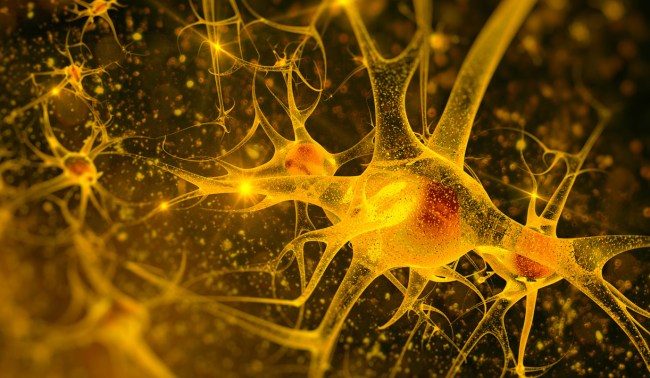
iStockphoto
For years now, scientists have been raising ethical concerns about the creation and use of lab-grown mini brains.
At the same time, other scientists are plowing full steam ahead, creating these brain organoids and trying to find ways to put them to good use.
Now, a group of scientists that fall into the latter category are trying to develop something called “organoid intelligence.”
They shared their research in a recent edition of the journal Frontiers in Science.
Essentially, they want to use these lab-grown mini brains as biological hardware for new biocomputers, LiveScience reports.
“While silicon-based computers are certainly better with numbers, brains are better at learning,” said one of the scientists, Thomas Hartung of Johns Hopkins University. “For example, AlphaGo [the AI that beat the world’s number one Go player in 2017] was trained on data from 160,000 games. A person would have to play five hours a day for more than 175 years to experience these many games.”
But… brains? In a computer? Why?
In a press release about their research, the scientists wrote, “Brains are not only superior learners, they are also more energy efficient. For instance, the amount of energy spent training AlphaGo is more than is needed to sustain an active adult for a decade.”
“Brains also have an amazing capacity to store information, estimated at 2,500TB,” Hartung added. “We’re reaching the physical limits of silicon computers because we cannot pack more transistors into a tiny chip. But the brain is wired completely differently. It has about 100bn neurons linked through over 1015 connection points. It’s an enormous power difference compared to our current technology.”
In parallel, the authors are also developing technologies to communicate with the organoids: in other words, to send them information and read out what they’re ‘thinking’. The authors plan to adapt tools from various scientific disciplines, such as bioengineering and machine learning, as well as engineer new stimulation and recording devices.
“We developed a brain-computer interface device that is a kind of an EEG cap for organoids, which we presented in an article published last August. It is a flexible shell that is densely covered with tiny electrodes that can both pick up signals from the organoid, and transmit signals to it,” said Hartung.
But what about all those sticky ethical questions about creating mini-brains just to do tasks for us humans?
Creating human brain organoids that can learn, remember, and interact with their environment raises complex ethical questions. For example, could they develop consciousness, even in a rudimentary form? Could they experience pain or suffering? And what rights would people have concerning brain organoids made from their cells?
The authors are acutely aware of these issues.
“A key part of our vision is to develop OI in an ethical and socially responsible manner,” Hartung said. “For this reason, we have partnered with ethicists from the very beginning to establish an ‘embedded ethics’ approach. All ethical issues will be continuously assessed by teams made up of scientists, ethicists, and the public, as the research evolves.”
What could possibly go wrong then?
In 2021, mini brains grown in a lab by scientists developed their own sets of “eyes.”
A couple of years prior to that, scientists worried that the mini brains they grew in a lab may be sentient and feel pain.
Is hooking these mini brains up to a computer really a great idea? What if they get access to the internet and start secretly communicating with self-healing superhuman robots?